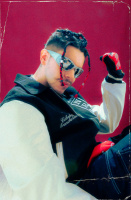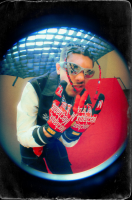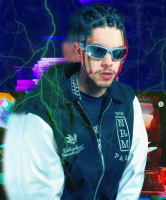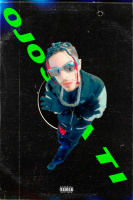Like all artists, he uses his personal experiences to create the basis of the fictional story that we later represent in our art, be it painting, film or music. Of course I let myself be carried away by what happens around me, I examine my environment and analyze what it makes me feel, and then write and sing about it.
I live in the Canary Islands, so I live surrounded by beautiful landscapes, from my own studio window, you can see the highest mountains of the island and it's beautiful. Also, in the Canary Islands we have an excellent climate almost all year round and that has a positive influence on the
- best Edit from season 11 - OJOS PA' TI Directed by Rodrigo Kunz Quintela
HOW DO YOU PERCEIVE THE INFLUENCE OF LATIN MUSIC IN THE WORLD MUSIC SCENE?
Today Latin music is positioned within the world top, having the most played artists and songs annually in the world. That makes there is even more competition to get far in this type of music, but I feel that the benefit I get from all this is the inspiration of a greater number of artists. Taking advantage of their ideas to create new things. It is always said that "everything is done" but every day I see an artist retrying, so that motivates me to not give up and create new things every day.
TELL US MORE ABOUT YOUR SONG "OJOS PA' TI."
"OJOS PA' TI" was born in inspiration from a famous latin artist called "Jhayco", who started doing reggaeton with a faster tempo. I liked the idea and started working on faster reggaeton beats and I loved it. The lyrics of the song were born just before the summer and I wanted to connect with that public that in summer falls in love, but realizes that summer love, was not what he expected and finally decides to leave. Hence the refrain of "Ya no tengo los ojos puestos para tí", referring to the fact that the person has moved on and is not thinking about his old love. It seemed to me a more lighthearted way of dealing with a "breakup" or an incomplete love.
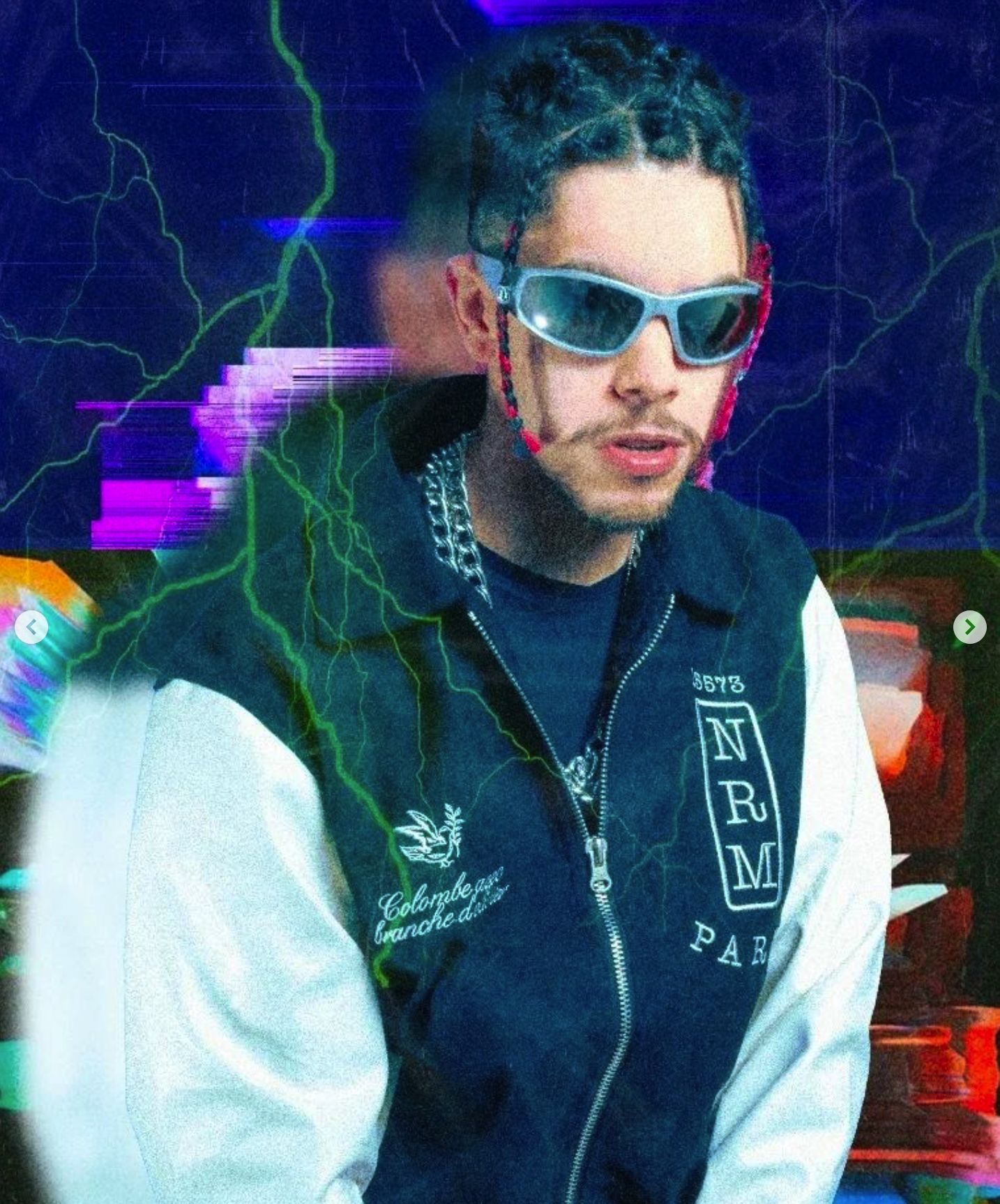
WHAT ARE YOUR PLANS AND GOALS IN THE LATIN MUSIC AND VISUAL SCENE FOR THE FUTURE?
Currently I have quite a few songs prepared for 2024, we have a release schedule until April. The project will be based on continuing to release Trap or Reggaeton style singles but looking for a way to differentiate ourselves from the rest, either from the lyrics or the creation of alternative rhythms. Also, I'm looking to collaborate with new artists that can bring me intellectual richness and learn from them.
My goal is to be able to make a living from music by 2024/2025 and to be able to start giving shows and thank all the team and friends who constantly support me.
TELL US SOME SECRETS OF YOUR EDITING PROCESS; YOU EVEN WON THE AWARD FOR BEST EDITING.
This is the first time we have won an editing award, however, both Rodrigo Kunz Quintela and I have artistic and film careers, he specifically has a degree in editing and works as an editor despite his young age. It is our first award, but it is not the first time that professionals recognize our work, since we know directors, editors and important people in the Spanish film industry who have been our teachers and have told us that we have a "special magic" in editing. We know how to work together, develop our ideas, support each other and get the best out of each other.
The key to good editing will always be to share it with other people, to listen to their advice and apply it if necessary, to have a critical sense and not to close ourselves to our own ideas.
This is the first time we have won an editing award, however, both Rodrigo Kunz Quintela and I have artistic and film careers, he specifically has a degree in editing and works as an editor despite his young age. It is our first award, but it is not the first time that professionals recognize our work, since we know directors, editors and important people in the Spanish film industry who have been our teachers and have told us that we have a "special magic" in editing. We know how to work together, develop our ideas, support each other and get the best out of each other.
The key to good editing will always be to share it with other people, to listen to their advice and apply it if necessary, to have a critical sense and not to close ourselves to our own ideas.
HOW IS YOUR EXPERIENCE WORKING IN POST-PRODUCTION, AND HOW LONG DOES IT TYPICALLY TAKE YOU TO CREATE A MUSIC VIDEO?
The process of creating a music video is typically a fast and complex production in certain cases. Shoots usually last for two days, while the planning phase is typically around 3 weeks. If we add the week of post-production and other photo sessions for promotion or anything that may escape from the shoot, creating a music video takes us around a month and a half.
The post-production process usually lasts for a week, where the first three days are dedicated to perfecting the cut and clarifying all visual ideas for the video. The following two days are for transitions or special effects, and the last day is for color grading to ensure everything is perfect.
Rodrigo and I have been editing together for at least 4 years, working on everything from music videos to short films—more than 15 edits in total. It's a process where you have to be open to listening and accepting others' ideas since a slight change can make a big difference. It's a journey that requires a LOT of patience, both technically, from dealing with computers and software, to emotionally, when things don't go as planned or your idea doesn't work out.
The post-production process usually lasts for a week, where the first three days are dedicated to perfecting the cut and clarifying all visual ideas for the video. The following two days are for transitions or special effects, and the last day is for color grading to ensure everything is perfect.
Rodrigo and I have been editing together for at least 4 years, working on everything from music videos to short films—more than 15 edits in total. It's a process where you have to be open to listening and accepting others' ideas since a slight change can make a big difference. It's a journey that requires a LOT of patience, both technically, from dealing with computers and software, to emotionally, when things don't go as planned or your idea doesn't work out.
HOW DO YOU PERCEIVE THE MUSIC SCENE IN YOUR COUNTRY, SPAIN?
I would like to speak more specifically about where I'm from, the Canary Islands, a global epicenter of urban music. As of today, there are emerging great artists with exceptional talent, such as "Quevedo." Not only singers but also impressive producers and cinematographers. Right now, the cradle of music in Spain has all its attention on the Canary Islands, and a significant wave is forming, which, fortunately, I hope to ride as well.
HOW DO YOU PERCEIVE AUDIOVISUAL FESTIVALS, AND WHAT ASPECTS HAVE YOU NOT ENCOUNTERED YET THAT YOU WOULD DEMAND MORE OF, EVEN IF IT MEANT A HIGHER FEE FOR REGISTRATION WOULDN'T DETER YOU?
As an artist who also works within the realm of cinema, I have had many experiences with festivals and various projects. Initially, I like them a lot; they contribute to intellectual development, present challenges, and reward the best. If I could ask for something extra, it would be transparency—to see the criteria on which they base their awards. Often, I come across winners in festivals that I find very good, but I don't know what requirements they had to meet to win that award. I believe it would be a more effective way, and I think we could all learn more if we knew the criteria used to assess a piece. I don't think it's necessary for the festival to explain why each individual didn't win; everyone should use their own self-critique to identify their errors or areas for improvement. Nevertheless, all of this would be possible with more transparency.
(Thank you for the excellent ideas for betterment. We will think about it and we will try to transfer it to the relay in the following year.! EMVA)

